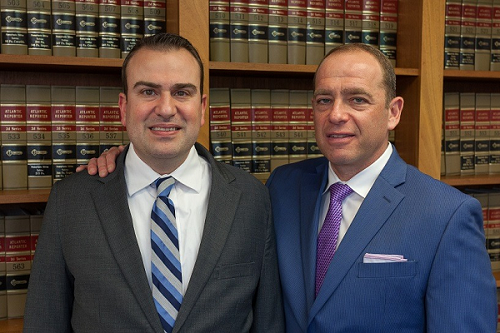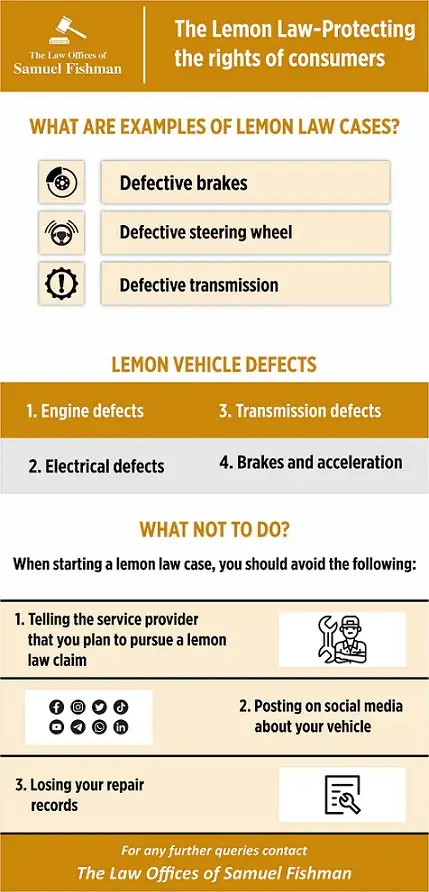What is the Lemon Law in Pennsylvania?

For example, you have purchased or leased a new automobile, motor home, semi-trailer truck, or all-terrain vehicle in Pennsylvania. The car has been used for less than twelve months or 12,000 miles. Furthermore, the vehicle may have one or more serious problems that substantially impair the value, use or safety of the vehicle.
Then, of course, you can take the vehicle to the manufacturer and attempt a repair. The law allows the manufacturer three attempts to repair the same problem. If the repairs are unsuccessful and the problem persists, you may demand a refund or replacement vehicle.
When it comes to lemon laws, hiring an effective lawyer can easily mean the difference between winning and losing. You should hire an attorney who has experience with lemon law cases. It is because your odds of success are greater if you have someone on your side who knows the law.
Can You Demand a Replacement Vehicle Under Pennsylvania’s Lemon Law?
You can demand a replacement vehicle if:
- Your vehicle needs repairs within the first 12,000 miles or 12 months, or
- You bring in your car for repairs for a cumulative total of thirty days during the first 12 months or 12,000 miles.
Therefore, a “lemon” in this context is a vehicle that is not fixed after a reasonable number of attempts to repair it. It applies to newly acquired vehicles that do not function or operate properly due to some sort of latent defect that might not be discoverable upon visual inspection. Hire a lemon law attorney if you were sold or purchased a lemon. A lawyer will contact the liable parties and take appropriate actions to remedy the situation.
When should you pursue a lemon law claim?
If you think that your new car has a problem, you may be granted protection under the law. The lemon law is a theory used in the U.S. for decades. It covers goods and services that do not work as they should.
Lemon laws cover anything from furniture to automobiles, appliances, and more. What happens if you have reached your breaking point with a defective product? Find out in this article when you should pursue a lemon law claim.
The Lemon Law is a state statute that protects consumers in the United States who purchase a used or new motor vehicle with major defects that prevent it from being driven safely. A person alleging a lemon law violation has the burden of presenting evidence to support the elements of such a claim. Therefore, consumers should not pursue a lemon law claim without consulting an attorney.
In many states, including Pennsylvania, a lemon law is a set of regulations that helps consumers who unwittingly purchase a defective vehicle. Lemon laws vary from state to state. You should know the specifics of the lemon law in your jurisdiction when purchasing a vehicle. It will not miss any statutory deadlines or lose money on a defective vehicle.
How to File a Lemon Law PA Claim:
If the defect is still present after a reasonable number of attempts to fix it, you may be eligible for a replacement vehicle or a refund of the purchase price.
- First, contact the manufacturer at the telephone number listed in your vehicle’s owner manual.
- If the zone representative is unable to correct the defect, you may request an arbitration of your case through the manufacturer’s dispute settlement program, if one exists.
- An arbitration decision is binding on the manufacturer but not on the customer, who may proceed further by bringing a private lawsuit.
- If the manufacturer has not established an appropriate dispute resolution procedure, you may initiate legal action at the outset.
The first thing to do is make sure you are within the time frame for filing a claim. The time frames vary depending on the state, but if your car is less than one year old, you are usually within the time frame for filing a claim against the manufacturer. Next, gather information about your vehicle, including details about what could be causing it to break down, how often it happens, and any other problems you have noticed. If you bought your car from a dealership, contact them for any records of the vehicle.
In case, the problem still exists after several repair attempts, you may be eligible for a replacement with either a new vehicle or something of similar value. If there is no replacement option available, you can get a full refund minus the vehicle’s use. If the manufacturer is not ready to replace your exact car model, they have to offer you another vehicle of the same value.
Negotiating with manufacturers and their lawyers, navigating arbitration, and possibly arguing a lawsuit in court are difficult for someone without the training and education of an attorney.
What’s more, you may not have the knowledge or references to accurately assess the value of your vehicle. These are all reasons to hire an attorney who understands lemon laws in Pennsylvania.
What to do if the car company refuses to fix your car

If the manufacturer is unwilling to replace or find a solution to your problem, or if they fail to resolve the situation satisfactorily, then you have a couple options:
- Look for an attorney who is well known and has experience in this field.
- File a case against the manufacturer.
A lawyer will help you with everything from filing paperwork, obtaining documentation, and negotiating for appropriate reimbursement through an arbitration settlement or at trial. If you are dealing with a lemon, contact a good lawyer for help.
Steps for Filing a PA Lemon Law Claim
The information necessary for filing a Lemon Law Claim include:
-
Eligibility Requirements:
According to the Pennsylvania Department of Transportation (PennDOT), the Pennsylvania Automobile Lemon Law applies to any new vehicle purchased or leased and registered in Pennsylvania or purchased or leased elsewhere and registered for the first time in the commonwealth for personal, family or household use including a vehicle used by a manufacturer or dealer as a dealer vehicle prior to its sale.
Lemon laws don’t include motorcycles, motor homes, or offroad vehicles. Under the law, the manufacturer must, at no cost to the purchaser, repair or correct any defect which substantially impairs the use, value or safety of the vehicle and occurs within one year after delivery or 12,000 miles of use, or the term of the manufacturer’s express warranty, whichever comes first.
-
Carry all the necessary Documentation
It’s vital to have proper documentation for your vehicle. You should have a copy of the purchase or lease contract, all the repair orders from the attempts you have made, and any other documents you have received by the manufacturer related to your vehicle’s problems.
-
Negotiations
If your case is unresolved after several attempts, your next step is likely to be arbitration. Arbitration is preferable to court for many vehicle manufacturers because it often costs them less. In arbitration, an independent contractor may inspect your car. That person will help the arbitrator make a fair and equitable decision that does not favor one party over the other. If you are successful, you’ll get the value of the vehicle or a suitable replacement of equal or greater value. If the decision is not in your favor, consult a lawyer to bring the case to court.
-
Legal Complaints
Do not let the manufacturer or arbitrator pressure you into agreeing to something that you don’t want to—their decision is not binding. You can proceed by filing a formal legal complaint. In Pennsylvania, you file a complaint in the court of common pleas. Start by finding a reputable lemon law attorney. A lawyer can represent you in court and fight for the money that is rightfully yours.
The Federal Trade Commission
The Federal Trade Commission (FTC) is the nation’s consumer protection agency. If you’re dealing with fraud or a breach of contract, then the FTC might play a role in your case.
Before contacting the FTC, you want to ensure that you have got your facts together. There are a number of things that the FTC looks at before they will accept a claim. It is important to be sure that you have enough information for them to begin their investigation.
If you have a car with a defect or non-conformity, the lemon law may apply to you. A non-conformity is an issue that substantially impairs the use of your vehicle and is more significant than a reasonable defect.
It also defines unreasonable as not typical for the make and model. For example, if your motor dies within five minutes of driving it off the lot, it may be considered a non-conformity, in which you can get a refund or a replacement.
To consult an experienced lemon law attorney, contact the Law Offices of Samuel Fishman and begin your claim. You deserve products that you pay for to work properly and safely. If this does not happen, you deserve to get your money back or a replacement vehicle.

